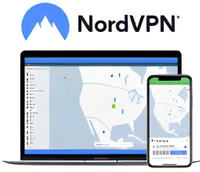Gaming while using a VPN—the pros and cons
We explore the benefits and drawbacks of using a VPN while gaming

Sign up for breaking news, reviews, opinion, top tech deals, and more.
You are now subscribed
Your newsletter sign-up was successful
A common question many gamers have is, should I use a VPN for gaming? On the one hand, VPNs can help enhance your gaming experience, and for some users a gaming VPN is actually an essential part of their win strategy. However, on the other hand, gaming with a VPN can come with some drawbacks that may make you decided that using a VPN during play sessions isn’t for you.
In this article I’m going to look at the gaming VPN pros and cons and help you decide whether it sounds like something you’ll find useful. The most important thing to remember is results vary depending on the quality of the VPN you’re using, so it pays to choose wisely and not go for just any old service.
Pros of gaming with a VPN
So, what are some of the benefits of using a VPN while you're gaming?
Using a VPN can lower lag and ping rates (latency)
One of the key features of a VPN is its ability to change your connection location. Typically this power is used to access geographically specific content, or avoid government censorship. For gamers, however, this location spoofing comes with additional benefits.
By connecting to remote servers using your new location, you can avoid busy hosts with high latency, and receive a much smoother and more competitive game experience. Not only can this help to reduce your ping, but it can also dramatically reduce lag, which is crucial to enjoying smooth, satisfying gameplay.
Another bonus from using a VPN is the chance to find servers in night time zones, where competition is lower and you’ve got a better chance of finding a server slot. It sounds like a small thing, but I’ve wasted far too much time in the past hunting around for vacant slots in my own time-zone on super busy servers. Using a VPN gives me options.
Using a VPN can mitigate DDoS attacks
One often overlooked benefit of running a VPN while gaming is the protection it gives you from distributed denial of service, or DDoS, attacks. Denial of service attacks, where an army of bots are deployed to overwhelm server access, can be a real problem in the gaming world. Jealous or angry rivals have been known to take offense and buy a bot ‘attack’ to harass and punish rivals.
The most famous case was that of Romanian gamer Calin Mateias, who in 2010 launched a series of DDoS attacks on World of Warcraft servers after a series of petty in-game disputes with other players. He was jailed for a year in 2018. By using a VPN, attacks against your personal IP address can be avoided, although there’s nothing that can be done if your game host servers are under attack.
By masking your own IP address, any attacks are redirected to the VPN supplier, who will have robust measures in place to overcome such attacks. It won’t work if the DDoS attack is already underway, so it pays to think ahead and install protection before you start to play.
Using a VPN can stop throttling by your ISP
Bandwidth throttling, where an internet service provider (ISP) will deliberately slow down your connection, is a real issue with some internet service providers or even countries. There are a number of reasons why it happens. The most benign is where the ISP is too congested, an overload of traffic forces it to reduce everyone's access speeds. This type is typically short lived, and speeds generally soon return to normal.
In other cases the ISP will deliberately target high bandwidth subscribers if they feel they’re doing too much streaming on services like Netflix, HBO or YouTube. Heavy gamers on AAA titles can also suffer from this negative attention, especially if they’re playing high bandwidth, high resolution titles like Starfield, Halo Infinite or Call of Duty. Throttling can even occur when you’re downloading the game to install.
The best way to check if you suspect you’re being throttled, is to run the game without a VPN and then again after loading the VPN. If your speeds increase with the VPN, it’s a pretty good sign that your ISP is not playing fair. As we all know, high speeds and low latency are essential to get the best out of your online gaming experience. By hiding your connection via a VPN tunnel, your ISP can’t track and throttle your speed.
Using a VPN give you access to games/releases in other countries
One cheeky but valuable advantage of using a VPN in your gaming life is to open up access to games that have been released in other territories before your own. Face it, we all want to jump onto the newest blockbuster Triple-A games as soon as they hit the stores. But sometimes, due to staggered launch strategies, a game we want is only available in a different region or country. Most often the USA.
The frustration of seeing fellow gamers on forums boasting about gameplay you can't enjoy yet, is rather like pressing your nose against a store window while those inside enjoy themselves. It’s gamer torture. A VPN can help route around a regional restriction. The best VPNs offer a wide range of various country servers you can connect to, depending on your needs. For example, if you’re based in Italy and need to access a game store in Ireland, you can switch to a Dublin server and instantly access content as though your computer was based in Ireland.
This form of location spoofing is a key perk of using a VPN, since it opens the door to a whole new world of game and media content that you might never have access to. It's important to note, however, that some game companies can identify your location through clever cookie and browser fingerprinting technology even when you're using a VPN, so it won't work every time.
Using a VPN can improve your lobby experience
Many of the more sophisticated multiplayer games now employ skill based match-making (SBMM) tech in their lobbies. This balancing tech helps to connect gamers at a particular expertise level and ensure that no-one has to play against someone who is light years ahead in terms of skill. The matching is done in the ‘lobby’ where you wait for a free server slot, and the more wins you rack up in a game over time, the more challenging your opponents will be in the later rounds.
Using a VPN can let you switch identities and give you more control over your next opponent or team. Easier rivals, easier game, less stress. Be careful though, as this could be against the game’s terms and conditions and get you banned.
Cons of gaming with a VPN
There are also a few downsides to using a gaming VPN which you should consider before jumping in and buying one.
Using a VPN can get you banned for violating terms of service
In general it is perfectly legal to use a VPN, and millions of people around the world happily use them everyday to gain the benefits I’ve outlined above. However there may be situations where it pays to be cautious about the use of these cool tools, and perhaps do a little research first before deploying.
If you live in a country which restricts the use of VPN technology, such as Russia, North Korea or China, you will need to check the particular laws that apply to your own situation. These and other countries generally restrict VPN use for cultural or political reasons, but the knock on effect can apply to gaming use as well.
Similarly, there are a number of games and gaming platforms which restrict the use of VPNs. Typically this is to prevent abuse, such as cheating or circumventing bans for cheating. Again there is no set list of these companies, so it pays to pay attention to the particular rules and regulations covering each platform or game. These restrictions can also be applied to stop gamers running multiple accounts to gain an unfair advantage, especially in multiplayer titles.
Some game stores prohibit the use of VPNs to spoof country locations and buy games out of region. These prohibitions often reflect copyright deals that are in place for game assets such as music or artwork, and you can be banned if you fail to comply.
Using a VPN can slow down your connection speed
While the use of a VPN can slow down your gaming connection speed, much depends on your network setup and the baseline speed you’re starting at. For modern high speed broadband, the 5-10% slowdown in connection speed from using a VPN is probably not going to make much of a difference to your gaming experience.
However if you’re on a slower connection to start with, then it might become a nuisance. The same goes when using a VPN while downloading your game files. I’ve now trained myself to switch off my VPN when installing larger game files, because it does give me a small speed increase. In general though you’re probably not going to notice much difference in overall download speeds.
One factor which could change that is if you have a lot of devices connected to your network. The more bandwidth you’re sharing, the slower the starting speed your VPN has to play with.
Our gaming VPN recommendations
At the end of the day, running a VPN on your computer is definitely a sensible thing to do. I’ve had a VPN permanently installed on both my computer and phones for more than a decade now. That being said, here’s a quick rundown of the best VPNs on the market at the moment.
1. The best all round gaming VPN: ExpressVPN
ExpressVPN consistently ranks among the best global VPN services. The company offers world class security (with ISAE 3000 Type 1 audited zero logs, vetted by KPMG), along with global server coverage in 105 countries.
The service also offers solid support for just about every gaming platform, including Meta Quest, Steam Deck, Nvidia Shield and even the Raspberry Pi. Throw in a 30 day money back guarantee and an annual plan with 3 months extra free, and it’s easy to understand the popularity.
2. A fast and secure gaming VPN: NordVPN
NordVPN is one of the fastest VPN services on the planet. With servers in 111 countries and 6500+ hosts, it also offers excellent coverage. The plans are extremely well priced, starting at $3.69 for the basic 2 year plan, with 3 months free. There’s a nice range of professional discounts for students, teachers, healthcare and others, which brings the price down even further.
One great feature is the free Meshnet service. For gamers it’s a really fast and easy way to set up a secure remote private LAN network so you and your friends can play privately away from the hordes.
3. Cheapest gaming VPN: Surfshark
Surfshark may not have quite the reach of NordVPN or ExpressVPN, but it does offer exceptional value for money. The 24 month plans start at $2.29 a month, with 2 months free, and a 30 day guarantee. What sets it apart are the nice extra apps which give added security to your life.
For example the Alternative ID feature lets you easily create a proxy email and ID persona to protect your real details. It's a great way to combat spam and make sure your gaming is extra secure at all times. Perfect for those gamers who are wary of being doxxed by random weirdos.
Gaming VPN FAQs
Why do I need a gaming VPN?
Probably best summed up with two words— privacy and stability. Online multiplayer gaming is a lot of fun, especially if you’re part of a team which regularly plays together. However the Internet is still a little bit of a Wild West, and there are folks out there who can cause problems, often for the most trivial reason.
Using a VPN provides an extra layer of privacy by masking your IP address and location, which makes it harder for people to hassle you. Whether through doxxing or DDoS attacks. VPNs also contribute to giving you a more stable connection, less vulnerable to ISP throttling or volatile Internet gateway problems.
Does using a VPN help with lag and ping issues?
Lag is the enemy of online gaming immersion. For example it can turn an awesome racing game driving experience into a horrible jerkfest. A quality VPN will ensure that your Internet connection stays stable, tunneling its way around problem hot spots to the hosting server.
An added bonus is the ability to switch VPN server locations instantly in case of a sudden drop in connection. The last thing you need in the middle of a furious FPS firefight is for your ping to blow up and drag your gameplay into the gutter.
Is it legal to use a gaming VPN?
Millions of people use VPN products legally every day around the world. They’re an effective and valuable tool to safeguard online identities and internet use. Gamers have been using VPNs since the earliest online games, and there’s never been a question about their value to the gaming community.
Of course there are ways they can be used for more illicit purposes, but those who are using a VPN to secure or improve their gaming experience are definitely legal, and free to enjoy the benefits.
What features should a gaming VPN have?
Any good quality gaming VPN should offer a range of important features. Number one, it has to offer fast and stable performance. Multiplayer gaming places a significant burden on Internet bandwidth and any VPN that cannot keep up is literally useless.
The second most important feature is privacy. The product should provide rock solid tunneling, securing your IP address to prevent unwanted snooping. A product which constantly goes down, or leaks your details is worthless.
Finally it’s important to check the quality of the VPN provider itself. The company should have regular security audits, provide transparency about its data handling and give guarantees where possible to ensure your privacy is maintained.
We test and review VPN services in the context of legal recreational uses. For example:
1. Accessing a service from another country (subject to the terms and conditions of that service).
2. Protecting your online security and strengthening your online privacy when abroad. We do not support or condone the illegal or malicious use of VPN services. Consuming pirated content that is paid-for is neither endorsed nor approved by Future Publishing.
Sign up to the TechRadar Pro newsletter to get all the top news, opinion, features and guidance your business needs to succeed!

Olivia joined Tom's Guide in October 2023 as part of the core Future Tech Software team, and is the Commissioning Editor at Tom's Guide. With a background in cybersecurity, Olivia is interested in how VPNs protect users' privacy, and how they improve online safety. She also regularly uses VPNs to make sure they deliver what they promise, and specializes in testing VPNs with streaming sites.
- Nigel PowellTech Journalist


